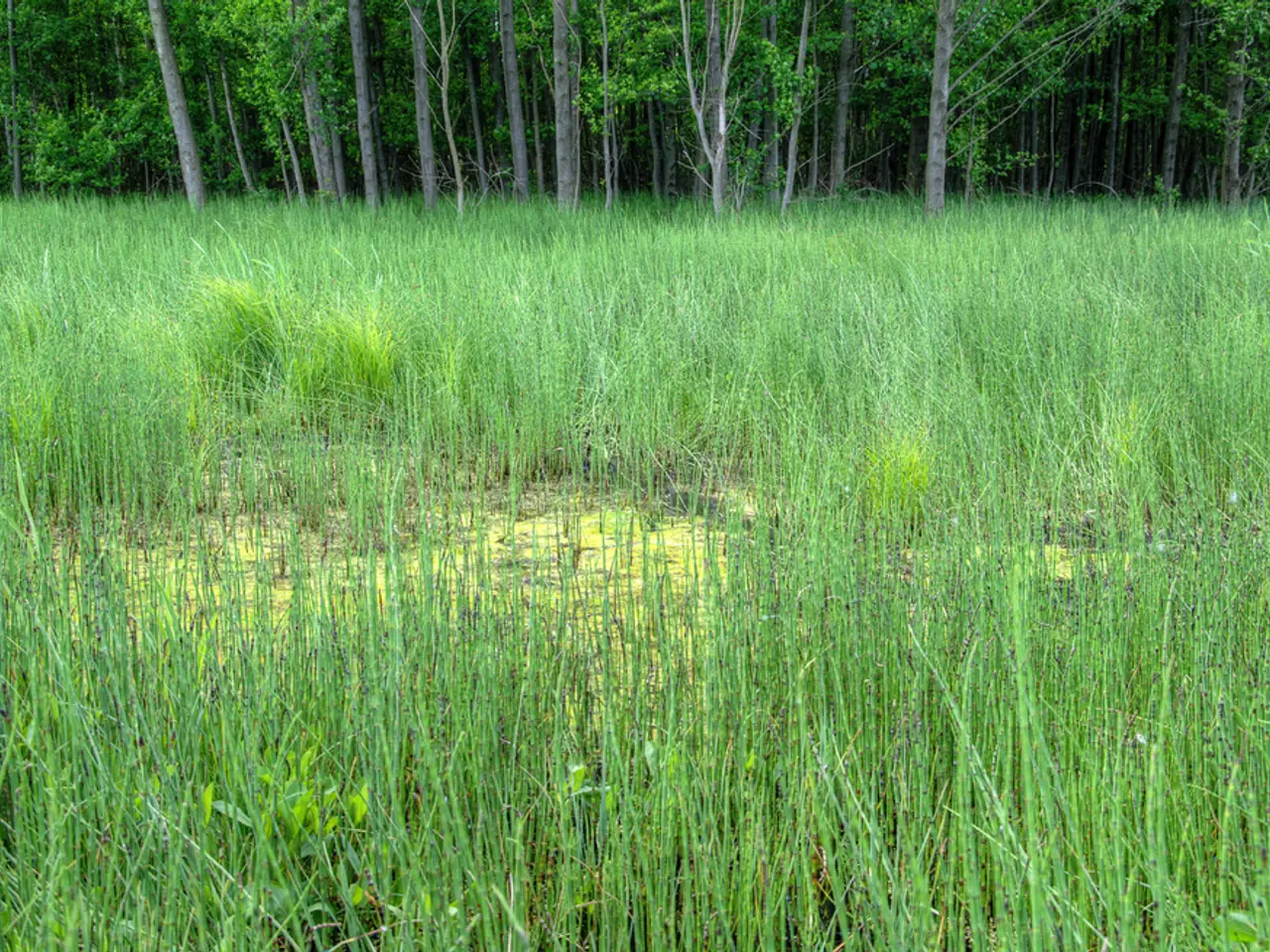Ginseng Market on the Verge of Expansion
Decree 183 Paves the Way for Sustainable Growth of Ngọc Linh Ginseng in Đà Nẵng City
Đà Nẵng City, Vietnam, is set to become a key regional hub for Ngọc Linh ginseng farming and processing, thanks to the implementation of Decree 183. This decisive legal framework, announced by Vice Chairman Hò Quang Bửu, aims to ensure sustainable growth for the industry[1].
The decree removes previous barriers, paving the way for the development of Ngọc Linh ginseng cultivation and processing in a well-controlled and qualified manner. It establishes standards and certified labels for ginseng roots produced in legal, forest-canopy farms, distinguishing them from illegally harvested ginseng[1].
Environmental and forest protection are at the heart of the decree. It ensures environmental safeguards and primary forest protection, creating a balanced approach that benefits both local farmers and investors[1]. The decree allows controlled ginseng farming under the forest canopy on Ngọc Linh Mountain within the Nam Trà My area, which is ideal for high-quality Ngọc Linh ginseng cultivation[1].
The decree also positions Đà Nẵng City as a regional centre for producing Ngọc Linh ginseng and associated products. This could stimulate investment and economic growth in the region[1]. To achieve this, the decree aims to expand the city's ginseng growing area to 20,000ha by 2030[1].
Investors in ginseng will be given a preferential rate for renting forest land, helping to reduce production costs by up to 15%[1]. The first 500ha of special-use forest land will be set aside for local farmers and investors by the end of this year[1].
Forest-canopy ginseng farms have been designated as a source of high-value medicinal herbs and an eco-tourism experience, with 10,000 visitors expected in 2026[1]. The decree prioritizes forest land allocation for ginseng farming for the local ethnic community, including 48 members of the Xơ Đăng ethnic group[1].
The Government's Decree 183 is expected to remove barriers for the future development of Ngọc Linh ginseng in Đà Nẵng City. It includes specific laws to identify boundaries for forest canopy land-rent allocations and offers an open policy forest environmental service rate of 5% of revenue per total forest land-rent area over a 10-year term for all investors[1].
Viettel, the State-owned telecom firm, is a strategic partner in promoting digital applications in the development of ginseng farming. They are building a ginseng nursery and sapling centre[1]. Thaco Group has signed Memorandums of Understanding (MoUs) with China's Sinopharm Group and partners in Jilin, China on developing Ngọc Linh ginseng in local terrain[1].
The decree recognizes the trade of Ngọc Linh ginseng as 'folk knowledge' and includes it in the National Intangible Cultural Heritage list[1]. This move is expected to boost the reputation and value of Ngọc Linh ginseng both domestically and internationally.
In conclusion, Decree 183 is a significant step forward for Ngọc Linh ginseng farming in Đà Nẵng City. It provides a legal and regulatory foundation, supports sustainable farming practices, and positions the city as a key player in the Ngọc Linh ginseng industry’s future expansion.
[1] Source: Vietnam News Agency (VNA) and various news reports.
- The government's Decree 183 aims to ensure sustainable growth for the Ngọc Linh ginseng industry, positioning Đà Nẵng City as a key regional hub for farming and processing.
- The decree establishes standards for ginseng roots produced in legal, forest-canopy farms, promoting health-and-wellness products while protecting the environment.
- Research and development in the field of science, including AI, could potentially contribute to improving the quality and yield of Ngọc Linh ginseng cultivation under the decree.
- The decree offers job opportunities in the Ngọc Linh ginseng sector, stimulating economic growth and encouraging foreign trade within the health market.
- To guarantee the success of domestic Ngọc Linh ginseng producers, the decree prioritizes forest land allocation for local farmers, including the Xơ Đăng ethnic group, ensuring cultural preservation.
- As Ngọc Linh ginseng farms become popular tourism destinations, the decree promotes eco-tourism experiences and fosters collaboration with companies such as Viettel and Thaco Group in business endeavors.
- By recognizing Ngọc Linh ginseng as 'folk knowledge' and adding it to the National Intangible Cultural Heritage list, the government hopes to further boost the reputation and value of this traditional health product on both domestic and international markets.




